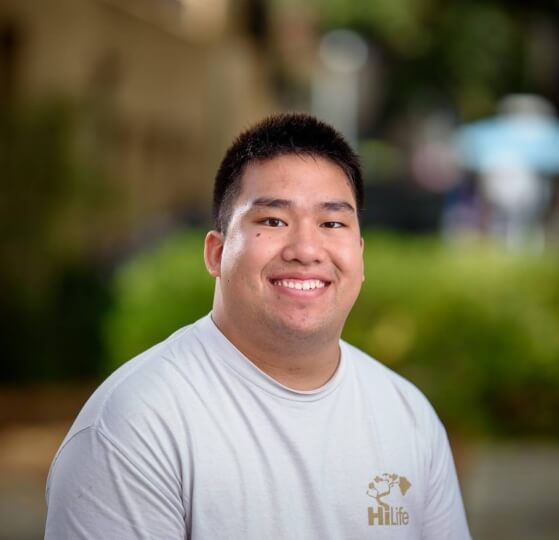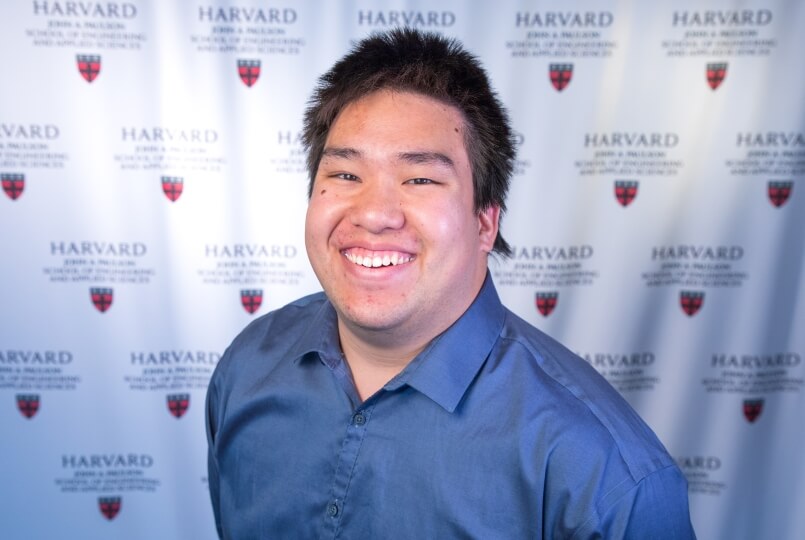The COVID-19 pandemic forced school systems across the country to rethink their approach to education, with varying results across communities. A recent report from the U.S. Department of Education found evidence that students of color or from low-income households especially struggled with academic growth, and that the pandemic had widened preexisting disparities in technological access, math and reading education and college enrollment.
Kyle Yoshida, S.B. '18, founded the HONUA Scholars in 2020 to help improve STEM education and advocacy opportunities for Native Hawaiians. (Credit: Kyle Yoshida)
Kyle Yoshida, S.B. ’18, saw that negative impact firsthand in his Native Hawaiian community.
“We had a lot of people we knew, distant friends and relatives, that were putting off college because it was too hard to do distance learning,” Yoshida said. “We also saw a lot of people in high school starting to not retain all the knowledge from their teachers.”
To help his community meet the academic challenges of the pandemic, Yoshida founded the HONUA Scholars in July 2020. As executive director, he has worked to create a network of academic mentors, professional development seminars and other programming to improve STEM (science, education, engineering and mathematics) education and social advocacy for Native Hawaiians and other underrepresented peoples.
HONUA stands for “helping others navigate, understand and achieve.” The word also means earth or foundation in the Hawaiian language.
“It’s helping with STEM education, but also developing this social ecosystem, so people could become STEM leaders within the community so that we can guide our own decisions,” Yoshida said. “We’ve created a network of graduate students across the nation, and 80-90 percent are Native Hawaiian. They were looking for a way to give back. By having these external mentors, you can give the people in Hawaii a gauge on what the different opportunities out there are, and how that can come back and change the Hawaiian community.”
Yoshida developed an interest in helping underprivileged students while concentrating in bioengineering at the Harvard John A. Paulson School of Engineering and Applied Sciences. He joined the EVKids tutorship program, where he tutored students in Boston.
Helping one student from Dorchester left an especially strong impression.
“He was doing a science fair project, and a lot of tutors pushed to do something cool and innovative,” Yoshida said. “He actually ended up doing the amount of hair that his cat sheds. It was with a hairbrush, and weighing the hair every day in a ziploc bag. It mattered to him, and he was very interested in it.”
That experience taught Yoshida that educational mentors had to teach at the students’ level, and tailor lessons to their students’ educational needs and interests. It’s an education balancing act, an idea that was reinforced through his interactions with Rhakesh Khurana, who was the Faculty Dean of Cabot House, in addition to his role as the Danoff Dean of Harvard College.
“I just remember him talking about how he can be the best person he can be,” Yoshida said. “You have to find the right balance between what you want, what you’re good at, and what the community needs. Those three pillars, that thought, has stuck with me. There are things you’re really good at, that you like to do, but if you don’t have the community around you, you’ll feel lost.”
Kyle Yoshida, who concentrated in bioengineering at SEAS, hopes the HONUA Scholars can better equip Native Hawaiians to overcome the environmental and political challenges facing their community.
Yoshida decided what his community needed was better STEM literacy, combined with better social advocacy training. Native Hawaiians face a number of environmental and political challenges, all of which he hopes the HONUA Scholars can help address through their mission.
“There’s the development of the Thirty Meter Telescope being built at the Mauna Kea volcano,” he said. “For Native Hawaiians, Mauna Kea is very important; it’s a very sacred site. A lot of our land is also very sacred, but how do we repurpose the old agricultural land that was used in Hawaii, and now might have a bunch of pesticides and runoff?”
Yoshida is currently working towards a Ph.D. in mechanical engineering at Stanford University, where he earned a master’s degree in the same field. He continues to expand the HONUA Scholars’ reach, with 2022 plans including the ‘Imi’ike Proposal Competition, a STEM-related essay contest for Hawaiian middle- and high-school students, and the worldwide virtual Laulima Symposium, which will bring together a wide range of people working in STEM or related fields.
“We can’t affect change in the community without the entire community,” Yoshida said.
He could be at Stanford for several more years, but Yoshida’s work with the HONUA Scholars will continue. He sees great potential in his community and wants to give his people the tools to utilize it.
“A lot of us have this vision for Hawaii,” Yoshida said. “We’re in the middle of the Pacific, but there is a melting pot of different cultures and backgrounds. If you can leverage that to spur innovation in STEM, we can become like Silicon Valley.”
Press Contact
Matt Goisman | mgoisman@g.harvard.edu

